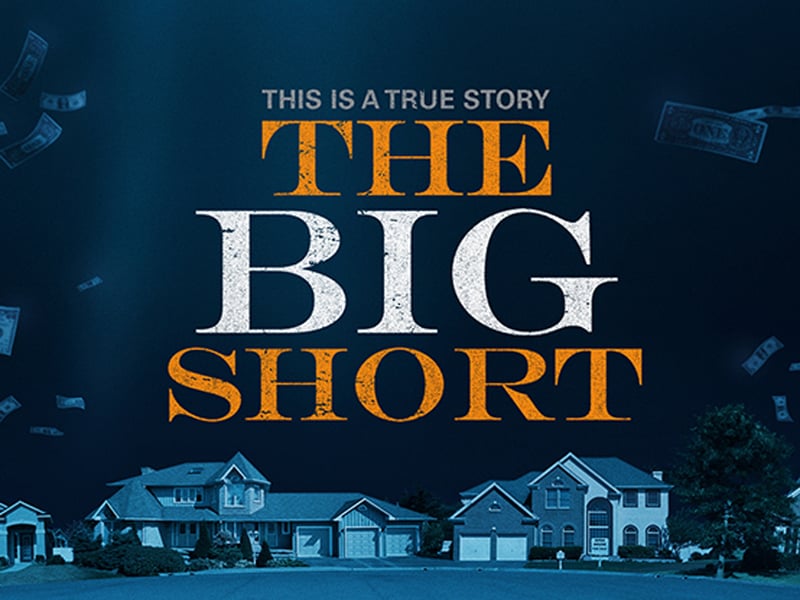Richard Thaler's cameo in the Oscar contending movie “The Big Short” was a rare moment of glamour for an economist who built his career studying the follies of human behavior.
Richard Thaler's cameo in the Oscar contending movie “The Big Short” was a rare moment of glamour for an economist who built his career studying the follies of human behavior.
The 70-year-old University of Chicago professor, whose stock-picking theories drive the Undiscovered Managers Behavioral Value Fund, is getting discovered in more ways than one. The small-cap mutual fund, which beat 99% of its Bloomberg peers over the past three and five years, has almost doubled in size to $3.7 billion during the past 12 months as investor deposits surged.
“What we try to do is put academic research to use,” Mr. Thaler said in an interview this month in Los Angeles. “We're interested in the dogs that are going to look better.”
http://www.investmentnews.com/wp-content/uploads/assets/graphics src="/wp-content/uploads2016/02/CI104073226.JPG"
Mr. Thaler, whose fund is owned and marketed by JPMorgan Chase & Co. and subadvised by his Fuller & Thaler Asset Management, explains synthetic collateralized debt obligations in layman's terms to the audience in “The Big Short,” the financial-crisis black comedy up for Best Picture at Sunday's Academy Awards. Money managers like him have been putting behavioral economic theory to the test since the days of value-investing pioneers Benjamin Graham and David Dodd as they seek an edge in the markets.
The Behavioral Value fund has averaged annual returns of 10 percent over the past 15 years, according to Morningstar Inc. The fund was started in 1998 by Undiscovered Managers LLC, a Dallas-based investment firm, two years after Fuller & Thaler created the strategy. JPMorgan bought Undiscovered Managers in 2003 and now markets the fund, which returned 3.4% in 2015, beating the 7.5% decline of its benchmark, the Russell 2000 Value Index.
'LESS CHEAP'
Dave Potter is the lead portfolio manager, ferreting out stocks that trade at low price-earnings ratios and look poised to rebound based on signals such as insider share purchases and company buyback plans. Russell Fuller, co-founder of the San Mateo, California-based firm, also is a portfolio manager.
“Just buying cheap stocks doesn't do you any good unless they get less cheap soon,” Mr. Thaler said.
Strategies based on Mr. Thaler's research haven't always been popular. The Undiscovered Managers Behavioral Growth Fund closed in 2012 “due to lack of critical mass and client demand,” Kristen Chambers, a JPMorgan spokeswoman, said in an e-mail.
Mr. Thaler, who published a combination memoir and history of his field last year called “Misbehaving: The Making of Behavioral Economics,” said his value fund blends judgment and quantitative analysis to outperform.
“We're an active manager, so we think we can beat the market by a little most of the time,” he said. “Our methods are kind of a hybrid. We don't fit neatly into a single quant versus judgmental box. We use judgment based on academic-style rigorous testing.”
FORMER STUDENT
Potter is a former Thaler student who worked at Goldman Sachs Group Inc. before joining Fuller & Thaler in 2005. He applies Mr. Thaler's research from three decades ago that found investors tend to overreact to price declines by selling losers, which later bounce back to outperform markets over the long term. Fuller refined that theory to seek signs for a rebound.
“The best information will come from people inside the companies, i.e. management buying their own stock in the open market,” Mr. Potter said in a telephone interview. “We're looking for the companies that say not only is our stock so cheap that management is buying it, but the company itself is going to forgo an M&A opportunity or capital expenditures and use cash to reduce the share count.”
He declined to discuss details about recent trades or current stock positions, which are led by financial, industrial and technology firms.
One past example was EnerSys, a growing industrial battery manufacturer that fell with the broad market to a low of $5.96 in November 2008, leaving it with an attractive valuation, a strong business model and manageable debt, Mr. Potter said. When EnerSys executives, including the chief executive officer, started buying shares, Potter followed. As the stock soared and insiders ramped up selling in 2013, it was a signal to consider exiting the position. The first shares were purchased for about $6.50 in November 2008, Mr. Potter said, and the last sold in March 2014 at about $72.50, near the all-time high.
'Surfer' Skills
The strategy missed with Knight Capital Group Inc., a market maker on the New York Stock Exchange and other venues as well as a broker that executed orders for clients. Knight was crippled by an August 2012 software malfunction that cost the company more than $460 million in trading losses and led to its sale.
“It was a sizable position,” Mr. Potter said of the company, which became KCG Holdings Inc. “That was a strong reminder that operational risk specifically the potential damage to a firm from 'black swan' unpredictable events — should always be considered.”
The fund was down 3.9% this year through Feb. 25, beating its benchmark as well as the Standard & Poor's 500 Index. Recent market gyrations are setting up opportunities for a stronger performance, Mr. Thaler said.
“We like volatility,” he said. “It's like a surfer needs surf. Everybody's going to look bad on flat water. If it gets a little choppy, you'll be able to show your skill.”







